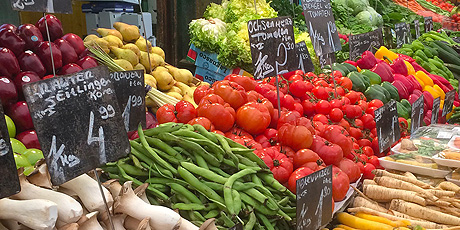A fifth of UK households are struggling to get access to good quality food at reasonable prices, a report by MPs says, causing them to turn to unhealthy, high-calorie alternatives. This, the report added, is likely to contribute to making 40% of the population obese by 2025.
The increase in food insecurity is partly because consumer price inflation has risen to its highest rates in over 40 years.
The report, Food Security, by the Environment, Food and Rural Affairs (EFRA) Committee, addresses the availability and affordability of food from the household to the national levels. It calls on the government to explore the options and affordability of extending the provision of free school meals and to break what it calls the ‘junk food cycle’ the UK suffers from.
The report says the promotion by retailers of relatively low-cost food which is high in calories but low in other nutrients – for example biscuits, burgers and other highly processed items – has led many poorer people in the UK to become obese. This cycle starts with the tendency for people to enjoy ‘tasty’ salty or sweet foods – a demand which is then satisfied by supermarkets and fast-food outlets.
This plentiful supply in turn creates more opportunities for people to buy food that is relatively bad for them. On current trends, the study says, the treatment of Type 2 diabetes alone that will result from this will, by 2035, cost the NHS more than it currently spends on treating all cancers.
The Committee’s report called on the government to review whether income support packages for poorer members of society – including welcome index-linked welfare benefit and pension increases – were sufficient to stop people needing to turn to food banks. It said this review of the situation of the lower paid should be published within six months of the publication of the Committee’s report.
The Committee compares the recommendations made in July 2021 by the government’s then ‘food Tsar’, Henry Dimbleby, with an official government report that was subsequently published in June 2022. Mr Dimbleby resigned as an independent food adviser to the government in March 2023 citing an “insane” lack of government action on obesity.
The EFRA Committee’s report says that while Dimbleby’s National Food Strategy, an Independent Review made the links between the types of food we eat and the health of the nation, the government’s subsequent Food Strategy document published in June 2022 “did not cover the topic at all or set out any actions to break the junk food cycle”.
Mr Dimbleby recommended in his Review, that along with other measures there should be a tax on foods that are high in sugar and salt. The government did not adopt the tax.
The Committee said the government should publish a detailed response to all the recommendations in the Dimbleby Review. It also called for an annual analysis by the government on all food security issues. This should include, the Committee said, a full impact assessment on the introduction of a tax on foods high in sugar and salt. That assessment should be submitted to the Committee within three months of the publication of the Committee’s report.
The EFRA Committee inquiry said there was an incoherent approach towards food policy across government. While the Department for Environment, Food and Rural Affairs is designated as responsible for food, 15 other departments and agencies are also involved in elements of food policy development and delivery.
The report recommended that the Cabinet Office should undertake a comprehensive review of all aspects of food policy and publish its findings within 12 months of the publication of the Committee’s report.







